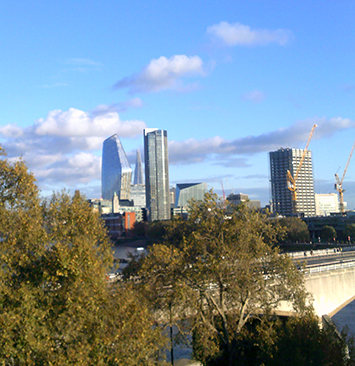Continuing a series of articles as a review of 2023, Mark Rowe looks the other side of the mirror, as it were, and discusses business planning. His hunch is that the sheer unpredictability of current affairs, and unprecedented changes to the climate (political and weather) has meant that the span of time that businesses look ahead has noticeably, even drastically, shortened. But that’s far from the whole story.
The ideal for a security contractor is to have a relationship with the customer strong enough that the client informs the contractor about how their foreseeable future. If the two sides have enough trust in one another to reach that happy state, it can be for the benefit of both. If, let’s say, a retailer can inform the contractor about how the retail chain sees the next three years, whether changes in tech (the next step after the recent bringing in of self-service check-outs, which have presented new loss prevention risks) or in investment (is the retailer going to retreat from physical high streets to online, refurbish its physical estate, or go for new sites?). All those decisions will have ramifications for the retailer’s security, whether the sort of security tech required, or simply where the guarding firm will have to drum up labour. The sooner and fuller the contractor knows, the smoother planning can be.
You used to hear grumbles about ‘short termism’ in British businesses; that they only think ahead to the next quarter or year, and hitting sales targets. A target at least concentrates minds; and the experience of the HS2 project, as unlike a short-term project as the UK has seen for some time, should show that long-termism can be bad, too. If managers know that they will most likely be gone, before a project’s cost over-runs or other shortcomings come home to roost, why should they care?
HS2, or another major UK infrastructure project, Hinkley Point C (HPC) nuclear power station, do show how security has to fit in, at the right time. If security or any other service is not available, at the right stage of the project, it’s a cost every hour that construction workers are having to wait. Planning has to be, and can be, meticulous. For HS2, first has come the levelling of ground and laying out of the road. Next will come the fitting of the actual track, cabling and so on. Security is different for each; as anyone can see along the length of the HS2 line, through the Chilterns and into Warwickshire and north of Birmingham into Staffordshire, the land has had to be fenced off. Once cabling is added, security will have then to address the risk of metal theft. Likewise for HPC, construction work so far is of the physical buildings; the actual nuclear material, and all the safety and security that comes with that, will follow.
Whether a security company managing its own affairs, or aligning with major customers, planning some years into the future is necessary to carry out sustainability or ‘Net Zero‘ decarbonisation. In a briefing yesterday at The Shard (pictured), Mitie CEO Phil Bentley noted that the FM contractor’s target of 2025 to go ‘Net Zero’ is nearing. Hence Mitie’s boast that it has the UK’s largest fleet of electric vehicles; not the same as having the largest fleet of vehicles. Just like a nation or indeed the world, going ‘Net Zero’ cannot happen overnight; it demands a plan. For Mitie and installers and maintainers of security and related products, electric vehicle charging points may offer a useful new market. If you’re an alarm receiving centre (ARC) and monitoring video surveillance cameras so that charging points aren’t stolen or damaged, why not look to offer the installing and maintaining also?
Planning, then, implies a larger, non-stop process of scanning the market for new opportunities (use of drones, for example; and if drones are likely to become more prevalent, might that bring a demand for counter-drone security services?). Equally implied is a look to the horizon for which markets or individual clients might be in decline and better off exited from. More intangibly, taking time to consider beyond the present, to range over the recent past and look into the foreseeable future, is part of a healthy, reflective outlook; what makes us human.









